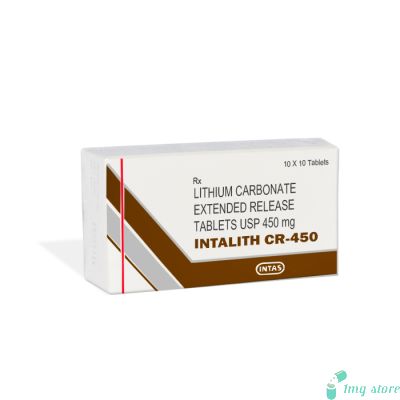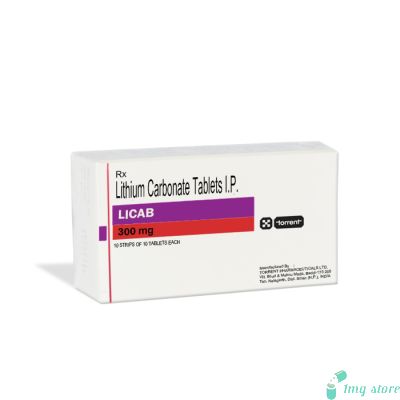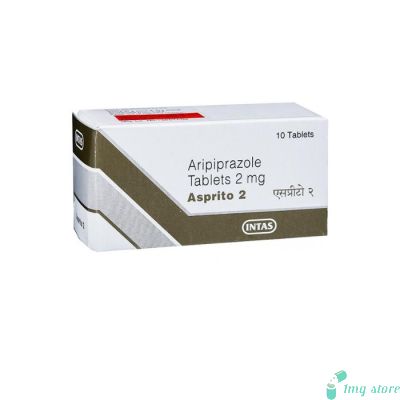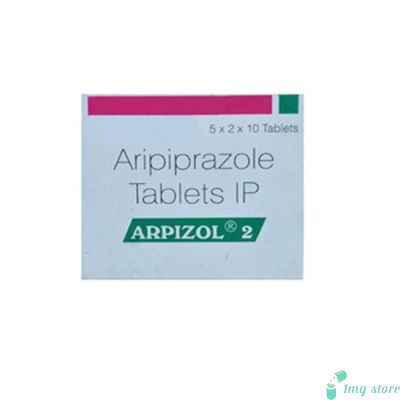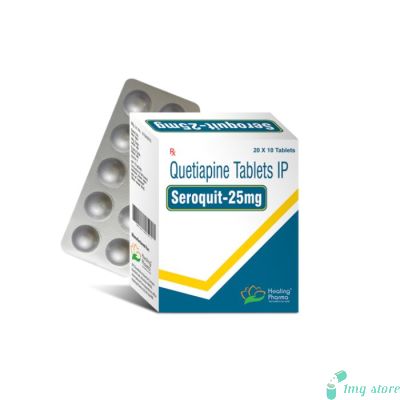Licab XL Tablet (Lithium Carbonate)
Licab XL Tablet is a medication commonly prescribed for the treatment of bipolar disorder and mania in adults. It is also occasionally used to manage other behavioral disorders. Lithium Carbonate medication is effective in reducing the frequency of manic episodes and minimizing the intensity of any episodes that may occur.
Introduction of Licab XL Tablet (Lithium Carbonate)
Licab XL is a medication that contains lithium carbonate as its active ingredient. It is primarily prescribed for the treatment of bipolar disorder, a mental health condition characterized by extreme mood swings, including episodes of Mania and depression. Lithium carbonate, the main component of Licab XL, is a mood stabilizer that helps regulate the neurotransmitters in the brain, thus reducing the severity and frequency of mood swings in individuals with bipolar disorder. By maintaining a stable mood, Licab XL can help manage the symptoms of this condition and improve the overall quality of life for patients. The doses should be taken as per instructed by your physician or healthcare provider. If you miss the dose then take it as soon as you remember, however, if it is time for the net dose then skip the missed dose and continue with your prescription. It should be swallowed whole and not crushed, chewed, or broken. If a patient is unable to swallow it, it can be dissolved in water or apple juice.
In addition to Licab XL, there are Licab XL alternatives available for the treatment of bipolar disorder. Some commonly prescribed alternatives include:
Valproate (Depakote): Valproate is another mood stabilizer that can be used in the treatment of Bipolar Disorder. It helps to balance neurotransmitters in the brain and control mood swings.
Lamotrigine (Lamictal): Lamotrigine is an anticonvulsant medication that is also used as a mood stabilizer. It is often prescribed for bipolar depression and can help prevent episodes of mania or hypomania.
Quetiapine (Seroquel): Quetiapine is an atypical antipsychotic medication that can be used to treat both manic and depressive episodes of bipolar disorder. It helps to stabilize mood and reduce the severity of symptoms.
Carbamazepine (Tegretol): Carbamazepine is an anticonvulsant medication that is sometimes used as a mood stabilizer for bipolar disorder. It can help control manic and depressive episodes.
It is important to note that the choice of medication and treatment plan for bipolar disorder should be determined by a qualified healthcare professional based on the individual's specific symptoms, medical history, and other factors. The effectiveness and suitability of a particular medication may vary from person to person.
Looking to buy Licab XL Tablet (Lithium Carbonate) online? Find the best deals and prices for lithium Carbonate tablets on our website. Purchase with confidence and get fast and reliable delivery.
Lithium Carbonate medication offers several benefits for individuals with bipolar disorder. Here are some of the key advantages:
Mood Stabilization: As a Neurology Drug, Licab XL is primarily used as a mood stabilizer. It helps to regulate the neurotransmitters in the brain, specifically targeting the imbalances associated with bipolar disorder. Stabilizing mood swings can reduce the frequency and intensity of both manic and depressive episodes.
Prevention of Manic Episodes: Licab XL is particularly effective in preventing manic episodes in individuals with bipolar disorder. It helps to control the excessive euphoria, irritability, impulsivity, and excessive energy commonly experienced during manic phases.
Prevention of Depressive Episodes: Licab XL can also help prevent or reduce the severity of depressive episodes. It plays a role in balancing neurotransmitters associated with depression, helping to alleviate feelings of sadness, hopelessness, fatigue, and loss of interest in activities.
Long-Term Management: Licab XL is considered a long-term treatment option for bipolar disorder. By consistently taking the medication as prescribed, individuals can experience sustained mood stability and a reduced risk of relapse into manic or depressive episodes.
Overall Quality of Life: By providing mood stability, Licab XL can significantly improve an individual's overall quality of life. It helps them maintain stable relationships, perform better at work or school, and engage in activities they enjoy.
It's important to note that while Licab XL offers numerous benefits, it may not be suitable for everyone. Each person's response to the medication can vary, and potential side effects or interactions with other medications should be considered. It is essential to consult with a healthcare professional who can assess your specific situation and determine the most appropriate treatment plan for bipolar disorder.
When using Licab XL (Lithium Carbonate), it is important to take certain precautions.
Regular blood tests are necessary to monitor the levels of lithium in the blood. This guarantees that the measurement is suitable and inside the remedial reach. Blood tests likewise assist with distinguishing any possible secondary effects or entanglements.
Maintaining proper hydration is crucial while taking Licab XL. It is recommended to drink an adequate amount of water and maintain a balanced fluid intake. Dehydration can increase the risk of lithium toxicity.
Some over-the-counter medications, such as nonsteroidal anti-inflammatory drugs (NSAIDs), can interact with lithium and affect its levels in the blood. It is important to consult with a healthcare professional before taking any new medications or supplements.
Lithium Carbonate medication is primarily eliminated from the body through the kidneys. Individuals with impaired kidney function may require adjusted dosages or closer monitoring to prevent potential toxicity.
If you are pregnant, planning to become pregnant, or breastfeeding, it is crucial to discuss the use of Licab XL with your healthcare provider. The medication may have potential risks to the developing fetus or nursing infant.
Alcohol and caffeine can interfere with the effects of Licab XL and may exacerbate mood swings. It is advisable to limit or avoid the consumption of these substances.
Licab XL may cause drowsiness, dizziness, or blurred vision in some individuals. It is important to assess your individual response to the medication before engaging in activities that require alertness, such as driving or operating machinery.
Major Utilization of Lithium Carbonate medication
Licab XL (Lithium Carbonate) is primarily used for the treatment of bipolar disorder, a mental health condition characterized by extreme mood swings. It helps stabilize mood, reduce the frequency and intensity of manic and depressive episodes, and promote overall mood stability.
Like any medication, Licab XL (Lithium Carbonate) can potentially cause side effects.
Common side effects associated with Licab XL include:
- Increased thirst and urination
- Hand tremors
- Weight gain
- Mild gastrointestinal discomfort (such as nausea, diarrhea, or stomach pain)
- Mild cognitive effects (such as difficulty concentrating or memory issues)
- Fatigue or drowsiness
- Dry mouth
- Hair thinning or loss
- Skin changes, including acne or rash
- Hypothyroidism (low thyroid hormone levels)
It is important to note that not everyone experiences these side effects, and their severity can vary from person to person. Additionally, some side effects may subside over time as the body adjusts to the medication. However, if you experience any persistent or severe side effects, it is important to inform your healthcare provider for further evaluation and guidance.
In rare cases, Lithium Carbonate medication can cause more serious side effects, including symptoms of lithium toxicity such as severe diarrhea, vomiting, muscle weakness, unsteady gait, slurred speech, or confusion. These symptoms require immediate medical attention.
Your healthcare provider will closely monitor your response to Licab XL and can provide guidance on managing side effects or adjusting the dosage if necessary. It is important to follow their instructions and report any concerns promptly.
Q: How long does it take for Licab XL to start working?
A: The onset of action for Licab XL can vary from person to person. Some individuals may start noticing improvements in their symptoms within a few days to weeks. However, it generally takes several weeks for the full therapeutic effects of the medication to be realized. It is important to continue taking Licab XL as prescribed and consult with your healthcare provider regarding any concerns about its effectiveness.
Q: Can I drink alcohol while taking Licab XL?
A: It is for the most part prescribed to restrict or keep away from liquor utilization while taking Lithium Carbonate prescription. Alcohol can interfere with the medication's effectiveness and may increase the risk of side effects. Additionally, alcohol itself can have a negative impact on mood stability, which is particularly important for individuals with bipolar disorder.
Q: How long does it take for Licab XL to start working?
A: The onset of action for Licab XL can vary from person to person. Some individuals may start noticing improvements in their symptoms within a few days to weeks. However, it generally takes several weeks for the full therapeutic effects of the medication to be realized. It is important to continue taking Licab XL as prescribed and consult with your healthcare provider regarding any concerns about its effectiveness.
Q: Can Licab XL cause weight gain?
A: Weight gain is a potential side effect of Licab XL. However, not everyone experiences this side effect, and the extent of weight gain can vary among individuals. It is important to maintain a healthy lifestyle, including a balanced diet and regular exercise, to minimize the risk of weight gain. If you have concerns about weight changes, discuss them with your healthcare provider for guidance.
Q: Are there any dietary restrictions while taking Licab XL?
A: There are no specific dietary restrictions associated with Licab XL. However, maintaining a consistent and balanced diet is generally recommended for overall health and well-being. It is important to maintain a normal salt intake and stay adequately hydrated while taking this medication.
Q: Can I stop taking Licab XL once my symptoms improve?
A: No, it is important to continue taking Licab XL as prescribed, even if your symptoms have improved. Stopping the medication abruptly can lead to a recurrence of symptoms or destabilize your mood. The duration of treatment will be determined by your healthcare provider based on your individual needs and response to the medication.
Q: Can Licab XL be used in children and adolescents?
A: Licab XL is primarily prescribed for adults with bipolar disorder. Its safety and effectiveness in children and adolescents may vary, and the decision to use this medication in younger individuals is typically made on a case-by-case basis. It is important to consult with a pediatric psychiatrist or healthcare provider experienced in treating pediatric bipolar disorder for appropriate treatment options.
Here are some common drug interactions to be aware of using Lithium Carbonate medication
Nonsteroidal Anti-Inflammatory Drugs (NSAIDs): Drugs like ibuprofen, naproxen, and anti-inflammatory medicine can expand the degrees of lithium in the blood, possibly prompting poisonousness. It is advisable to avoid or minimize the use of NSAIDs while taking lithium carbonate. If necessary, consult your healthcare professional for alternative pain relief options.
Diuretics: Diuretics, commonly prescribed for conditions like hypertension or edema, can decrease the excretion of lithium from the body, leading to elevated lithium levels. This can increase the risk of lithium toxicity. It is important to inform your healthcare provider if you are taking diuretics, as they may need to monitor your lithium levels closely and adjust the dosage if necessary.
Antidepressants and Antipsychotics: Certain antidepressant and antipsychotic medications can interact with lithium Carbonate medication. For example, selective serotonin reuptake inhibitors (SSRIs), such as fluoxetine or sertraline, may increase the risk of serotonin syndrome when used in combination with lithium. Additionally, antipsychotics like haloperidol or risperidone may also have an additive effect on mood stabilization. Close monitoring is recommended when these medications are used together.
ACE Inhibitors and Angiotensin Receptor Blockers (ARBs): Some medications used to treat hypertension, such as ACE inhibitors (e.g., lisinopril) and ARBs (e.g., losartan), may increase the risk of lithium toxicity. Regular monitoring of lithium levels is important when using these medications in combination.
Calcium Channel Blockers: Certain calcium channel blockers, such as verapamil or diltiazem, can increase lithium levels in the blood. Regular monitoring and potential dosage adjustments may be necessary when using these medications concurrently.
Other Medications: It is essential to inform your healthcare provider about all the medications, including prescription, over-the-counter, and herbal supplements, that you are taking. Some medications, including anticonvulsants, antithyroid drugs, and certain antibiotics, can potentially interact with lithium carbonate and require monitoring.
| Manufacturer | : | Torrent Pharmaceuticals Ltd |
| Equivalent Brand | : | Lithium carbonate |
| Generic Search | : | Lithium carbonate |









